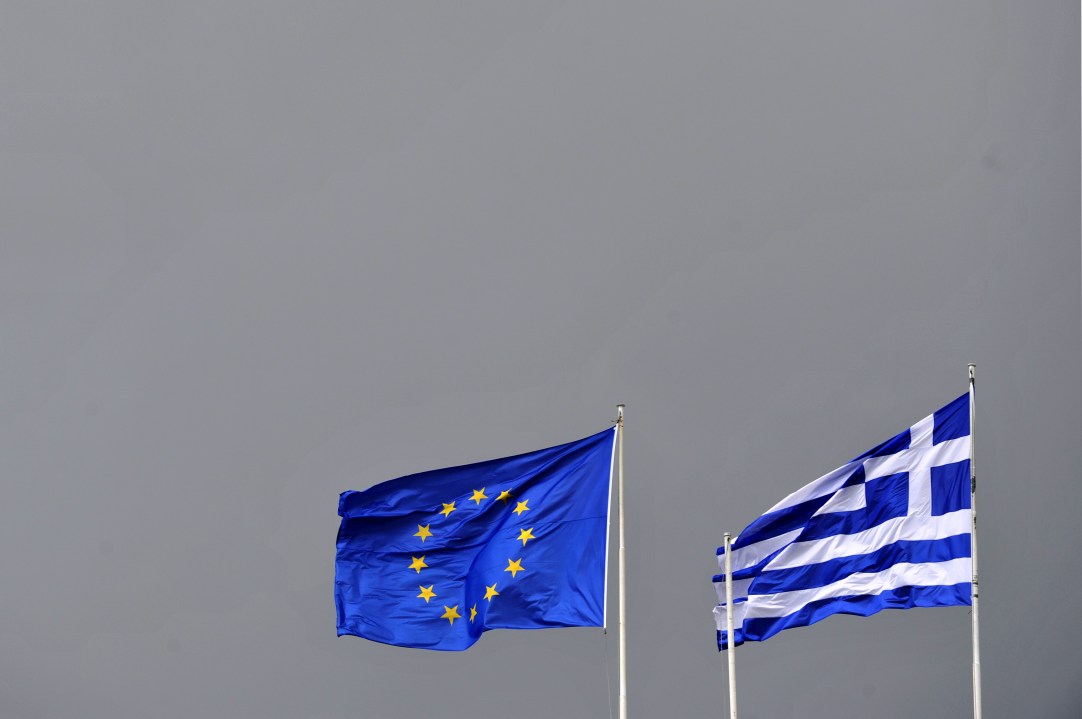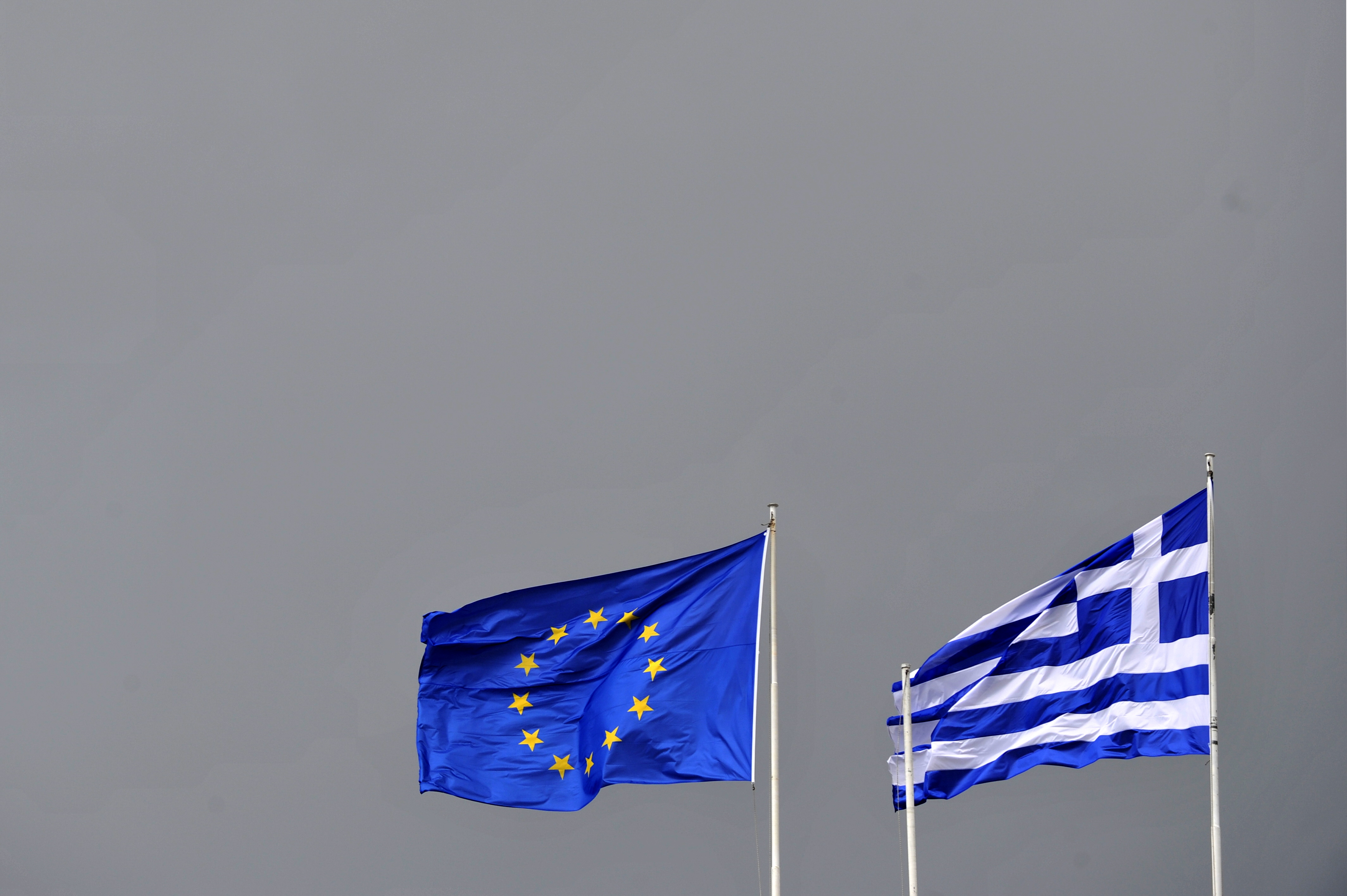How about this for a claim by Nicolas Sarkozy, made in a TV appearance yesterday? ‘Europe is no longer at the edge of the cliff.’ It’s quite some statement, so let’s hear it again: ‘Europe is no longer at the edge of the cliff.’ Of course, Sarkozy has reasons for saying it beyond mere pre-electoral braggadocio: the rates paid on Italian and Spanish 10-year bonds have generally been falling since the the beginning of the year; the euro has been making some tentative progress against other currencies; and so on. But it still constrasts heavily with much else that is being said around the eurozone. Only last week, Angela Merkel was talking of the overall failure to ‘stabilise the situation’ in Greece. And only yesterday, Greece’s Prime Minister issued a grim warning about ‘the spectre of bankruptcy’.
So who’s got it right, the doomsters or the boomsters? Much depends on the answers to a couple of questions circling about Greece. First, will Athens be able to renegotiate its debts with the country’s creditors? Second, will it commit to tighter fiscal restraint, and give reassurances that it will actually be achieved? Such are the conditions attached to the €130 billion bailout package being dangled before Greece, designed to prop up the country for a little while longer yet.
It’s the first of these questions that has a more certain answer at the moment. After doubts last week, it does look as though Greece is now on the verge of succesfully renegotiating €200 billion of its debt, cutting it down to at least half of that size (and, incidentally, probably confirming that it’s in ‘restricted default’ in the process). As for the second question, that’s where the political battle is raging as European leaders meet for yet another round of talks today. Greece’s coalition has said that it’s up for more austerity, but the other European countries — particularly Germany — want to see less saying and more doing. That’s why Berlin has proposed imposing an external ‘budget overseer’ on Athens, with the power to veto Greek tax and spending decisions; a plan that has been met with angry resistance by Greece’s finance minister. And it’s why, in turn, Germany’s finance minister is warning this morning that Greece may not get any extra funds after all. Stock markets appear to be quivering as the spat goes on.
All of which is to say, Sarkozy is sounding unduly optimistic. Unless, that is, he had something else in mind, something devious: that the eurozone can pull back from the cliff even if Greece tumbles over the edge. It was, after all, striking that Merkel referred to Greece as a ‘special case’ in her interview last week. So perhaps, just perhaps, Merkozy’s attention has now shifted to protecting Spain and Italy, and they see Greece’s restricted default as a way of letting its investors, and global markets, down slowly and gently. It sounds wacky, I know. But as one or two financial types have said to me when laying out this theory: don’t underestimate the eurozone’s capacity for wackiness.







Comments